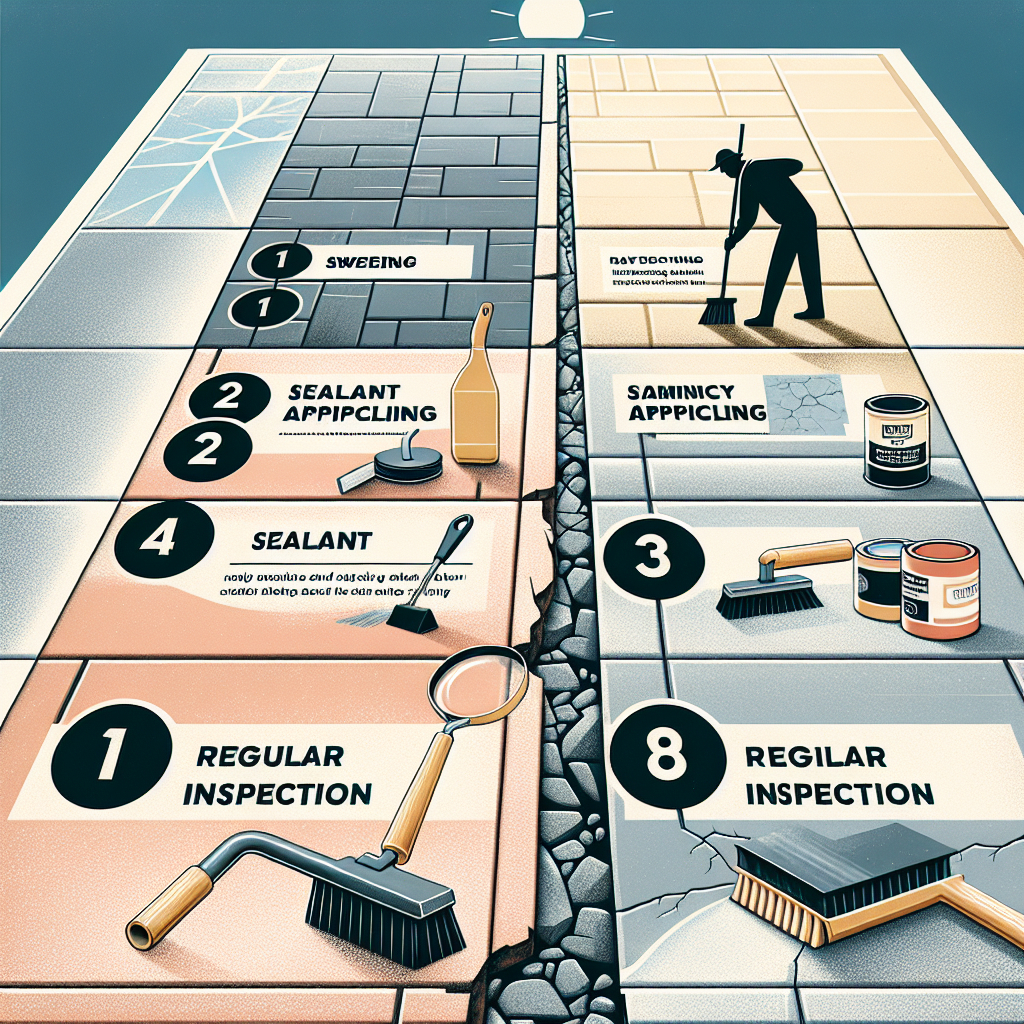Pavement is an essential component of our everyday lives. Whether it’s the driveway leading to your home, the parking lot of your favorite store, or the roads we travel daily, maintaining the integrity of this surface can save you money and prevent inconvenience. Here, we share the top 10 tips for extending the life of your pavement, ensuring it remains safe and aesthetically pleasing for years to come.
1. Regular Maintenance: The Key to Longevity
One of the simplest yet often overlooked aspects of pavement care is regular maintenance. A little effort goes a long way. Schedule consistent checks throughout the year to identify cracks, potholes, or other damages. Early detection can save you from costly repairs down the line.
Tip: Create a maintenance calendar to remind you of seasonal checks, and engage a professional if needed.
2. Sealcoating: A Protective Barrier
Sealcoating is an essential protective treatment for asphalt surfaces. It acts as a barrier against harmful UV rays, water, and chemicals that can deteriorate the material. Performing this every 2-3 years can significantly prolong the lifespan of your pavement.
Pro Tip: Make sure to clean the surface before applying sealant and choose high-quality products for maximum effectiveness.
3. Proper Drainage: The Secret to Avoiding Water Damage
Water is one of the biggest enemies of pavement. Poor drainage can lead to water pooling, accelerating wear and tear. Ensure that your pavement is sloped correctly and that drainage systems are clear of debris.
How to Improve Drainage
- Check gutters and downspouts for blockages.
- Install French drains or catch basins where necessary.
- Ensure that the surrounding landscape is sloped away from the pavement.
4. Avoid Heavy Loads: Know Your Limitations
Excessive weight on your pavement can lead to cracking and structural damage. Be mindful of the loads you place, especially for driveways or parking lots. Use signs to remind delivery trucks of weight limits.
Tip: If you regularly host events that attract heavy vehicles, consider reinforcing those areas or paving with a thicker asphalt layer.
5. Temperature Considerations: Timing your Repairs
Pavement is vulnerable to temperature fluctuations. Extreme hot or cold conditions can affect asphalt behaviors, so timing your repairs is crucial.
Ideal Repair Seasons
- Spring: Ideal for sealcoating and small patch repairs after winter damage.
- Fall: A good time for major repairs before snow hits, ensuring the pavement is ready for the winter months.
6. Use High-Quality Materials: Invest in Longevity
One of the best ways to extend the life of your pavement is by using high-quality materials. Cheaper options may seem appealing at first but can lead to premature damage.
Tip: Work with reputable contractors who can guarantee the quality of their materials and installation techniques.
7. Weed Control: A Silent Destroyer
Weeds may seem innocuous, but their roots can penetrate cracks and cause significant damage. Regularly inspect your pavement for weeds and remove them promptly.
Effective Weed Control Strategies
- Apply a commercial weed killer to cracks.
- Use a weed torch or boiling water for safe, effective removal.
- Regularly fill in cracks with sealant or caulking to prevent regrowth.
8. Sidewalk and Curb Maintenance: Don’t Overlook the Edges
While we often focus on the main surfaces, sidewalks and curbs require just as much attention. Cracks and uneven surfaces can lead to safety hazards. Regularly check these areas and repair them promptly.
Tip: Encourage pedestrians to report any issues they encounter to maintain safety and aesthetics.
9. Avoid Harsh Chemicals: Protect Your Pavement
Salt and certain cleaning chemicals can wear down pavement surfaces. During winter months, opt for sand or eco-friendly de-icing products to protect your pavement.
Green Tip: Snow shoveling is a safer option than harsh chemicals. Not only does it protect your pavement, but it’s also environmentally friendly.
10. Get Professional Inspections: Don’t Go It Alone
Finally, consider hiring professionals to inspect your pavement at regular intervals. They often recognize issues that DIY checks may miss. Additionally, they can provide tailored recommendations based on the specific materials used in your pavement.
Why Regular Professional Checks Matter
- They utilize specialized tools and knowledge.
- They can foresee potential future issues and suggest preventive measures.
- Ensuring industry compliance can save you legal trouble down the road.
Conclusion: Prolonging Pavement Life with Care
Extending the life of your pavement involves dedication, attention, and proactive measures. By following these ten tips, you can ensure that your pavement remains safe, functional, and visually appealing for years to come. Investing time and resources upfront not only enhances safety but also offers tremendous long-term savings. Start implementing these strategies today, and watch your pavement thrive!


